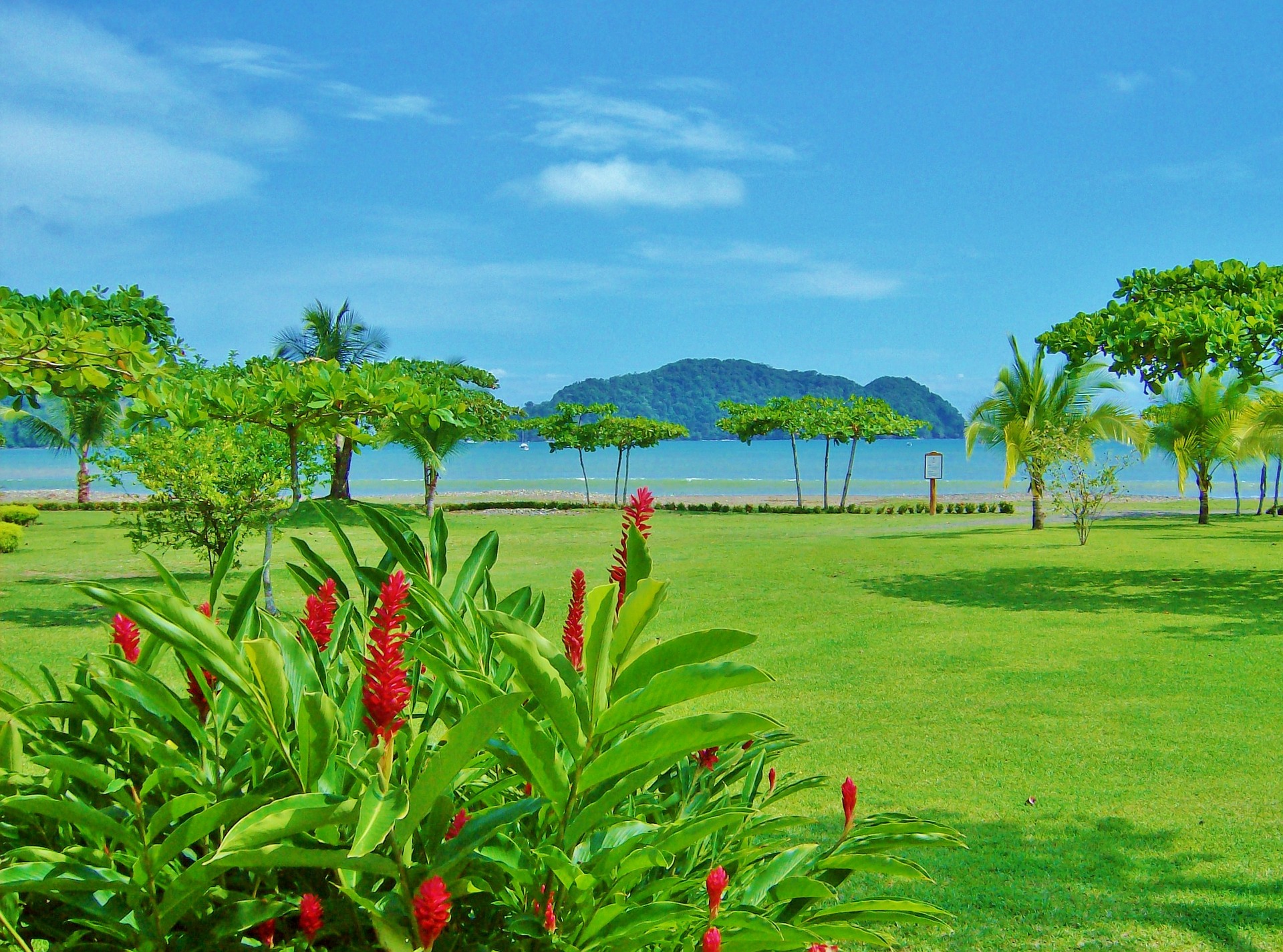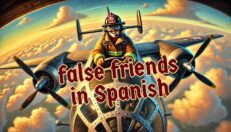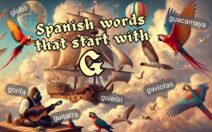Costa Rican Slang: 30 Words To Talk Like A Real Tico

Get our free email course, Shortcut to Conversational.
Have conversations faster, understand people when they speak fast, and other tested tips to learn faster.
More infoIf Costa Rica isn’t on your travel bucket list, then we recommend reevaluating that list and adding a country where you can find incredible coffee, diverse wildlife, fantastic weather and generally pleasant locals who will greet you with a smile – especially if you know a little bit of Costa Rican slang.
This post is the latest in a series of posts we wrote on unique Spanish slang that you can find in Spanish speaking countries.
We also wrote about slang in:
- Colombian slang
- Mexican slang
- Venezuelan slang
- Chilean slang
- Argentine slang
- Uruguayan slang
- Guatemalan slang
- Cuban slang
- Honduran slang
- Bolivian slang
And now, we’ll dive into the most essential Costa Rican slang that you should know.
1) ¿Qué es la vara?
It’s very common to hear this on a day to day basis, as it’s the equivalent of “what’s up?” or “what’s going on?”
- ¿Como estas mae? ¿Qué es la vara? – How are you dude? What’s up?
2) Agüevado
Slang for feeling a little depressed, sad, or bored. Similar to feeling blue.
- ¿Qué te pasa estas como agüevado? – What´s up with you, you look like you´re feeling blue?
3) Añejo
Costa Rican slang for someone who looks messy, or perhaps doesn’t take care of their personal hygiene.
- Te ves añejo, ¿te botaron de tu choza? – You look really messy. Did someone kick you out of your home?
4) Bomba
Relax, it’s not a bomb, it’s just a gas station.
- Vamos a la bomba que el carro se está quedando sin gasolina – Let’s go to the gas station, the car is running out of gas
5) Brete
In Costa Rica, when you go to work, you go to the “brete”.
- No puedo ir contigo, estoy en el brete ahora – I can’t go with you, I’m at work now.
6) Tico
You can call people from Costa Rica “costarricenses” or just “Tico” or “Tica”. We prefer the latter.
- Soy de Costa Rica, soy Tico – I’m from Costa Rica, I’m a Tico
7) Carga
Caraga actually means load, but for some reason, Ticos use this word to describe someone is really good at something.
- Ese hombre es una carga en lo que hace – That guy is very good at what he does
8) Chinear
When you want to spoil someone, this is the word that Ticos use, chinear.
- Vine a chinear a mis sobrinas – I came to spoil my nieces
9) Choza
Normally, “choza” refers to a hut, which is a house made of wood or palms that you usually see them in rural areas. However, in Costa Rican slang, Ticos say use this word for their houses in general.
- Me voy a mi choza, estoy cansada – I’m heading home myself, I’m tired
10) Dar pelota
Literally means “to give a ball”, but in Costa Rican slang, it means to ask for attention.
- Dame pelota que estoy hablando de algo importante – Pay attention to me, I’m talking about something important
11) Gallo Pinto
If you visit Costa Rica then make sure you order yourself a traditional dish, like a “gallo pinto”, which is rice and beans.
- Quiero comerme un buen gallo pinto hoy – I wanna eat today a good plate of rice and beans
12) Goma
In Spanish, this typically mean means glue, but in Costa Rican slang, Ticos use goma to say that they have a hangover.
- Tengo una goma muy grande, pero la fiesta estuvo rajada – I have a big hangover, but the party was amazing
13) Güila
Another name for the kids, children, or a boy or girl.
- Ando llevando al güila al colegio – I’m taking the child to school
14) Hablar papaya
When someone is talking nonsense, they are talking papaya (the fruit).
- Deja de hablar papaya y ponte a estudiar – Stop talking nonsense and start studying
15) Jama
Refers to any food, whether it’s a snack, breakfast, lunch or dinner.
- Yo traigo la jama esta noche – I’ll bring the food tonight
16) Mae
Similar to “dude” in English, it can be used with pretty much anyone, male or female.
- Dile a ese mae que se devuelva. Olvidó su dinero – Tell that guy to come back. He forgot his money
17) Me jalé una torta
Costa Rican slang phrase that is used when someone makes a mess or does something wrong, and then gets in trouble for it. The literal translation is “pull a cake”.
- Carolina se jaló una torta por no aprobar los exámenes – Carolina got into trouble for not passing exams
18) Mejenga
A game of soccer on the street.
- Mae, vamos a la mejenga de esta noche – Dude, let’s go to the soccer game tonight
19) Metiche
Costa Rican slang for someone who is nosy.
- No seas metiche, metete en tus asuntos solamente – Don’t be so nosy, mind your own business
20) Por aquello
Ticos use this phrase to express ” just in case “.
- Por aquello, mejor voy a llevar el paraguas – Just in case, I’ll bring the umbrella
21) Por dicha
“Dicha” means bliss, and so this phrase translates as “luckily” or “fortunately”.
- Por dicha, pude llegar a tiempo al aeropuerto – Luckily, I was able to get to the airport on time
22) Presa
Presa in Spanish has a couple of different meanings, as it can be feminine for being in jail, or can mean “prey” or a “dam”. In Costa Rican slang, it means being in a traffic jam.
- Voy a llegar tarde, estoy en la presa I’ll be late, I’m in a traffic jam
23) Pura Vida
This one literally translates to “pure life”, but Ticos tend to use this word for everything – I mean everything! It’s almost more like a mantra than slang. It’s difficult to explain what it means, but “pura vida” can be used to say hello, bye, what’s up?, thank you or to express something that is really good.
- ¡Este café es pura vida! – This coffee is pure life
24) ¡Que chiva!
Depending on the context, it can be used to describe something that is really good, or someone (usually a female) who is really, really mad.
- Que chiva está la música – The music is so good
25) Rajón o Rajona
Costa Rican slang for a person who likes to brag.
- No seas tan rajón que eso no es bueno – Stop being a brag, that’s not good
26) Rajado
When something is “rejado”, it’s really amazing.
- Esta fiesta está rajada – This party is amazing
27) Sodas
In Costa Rica, you’ll probably find yourself eating in “sodas”, which are family run restaurants that serve homemade food for a few dollars.
- Vamos a comer a la soda de la esquina – Let’s go to eat to the family restaurant on the corner
28) Tuanis
Costa Rican slang for something really, really good.
- Que tuanis este lugar – This place is so good
29) Vara
Although this word means “rod” in English, Ticos use this as slang when referring to an object, or thing that you don’t immediately name – whether you don’t know the name or simply forget its name.
- ¿Como se llama la vara que acabamos de comprar? – What’s the name of the thing we just bought?
30) Zaguate
Costa Rican slang for a street dog.
- ¿Puedo adoptar este zaguate? – Can I adopt this street dog?



